Browse Our Books
You can browse our books easily with any of the following filters, hover over the filters or their titles to see their descriptions.
Reading Level
Categories
Or you can use quick search or switch to advanced search for better results...
Search Results (Found 7961 results)

Evolving Technology
This series traces the history of technology in several fields, as well as its positive and negative impacts on individuals, the environment, and society at large. From the earliest domestication of plants and animals to the latest in medical biotechnology, students will gain a nuanced understanding of how scientists and engineers developed the tools and machines we rely on and how those developments have indelibly changed the world.
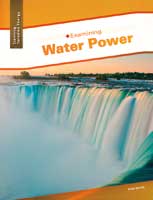
Examining Canadian Energy 
What energy sources did humans use in the past? What sources help meet Canada’s and the world’s energy requirements today? How do we balance our energy needs with protecting the environment? Examining Canadian Energy answers all these questions and more. Each book in this compelling series takes readers on a fact-finding mission, posing an initial challenge and concluding with questions and answers. Through engaging, interactive scenarios, learners can experiment with text prediction, purpose-driven research, and creative problem solving while learning all about various forms of energy, how they work, and their role in Canada’s energy future.

Examining Political Systems
In today's political landscape, young people are being confronted with diverse perspectives on political systems and major challenges to economic structures. Each book in this series presents readers with historical sources on political systems and structures, offering such primary sources as texts, photographs, and propaganda, for readers to evaluate and interpret. By understanding the principles of diverse political ideologies and how to decipher political jargon and propaganda, readers can participate meaningfully in the debates of our times.
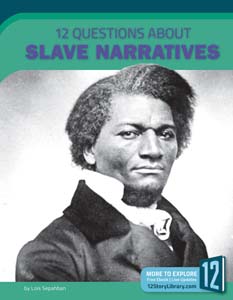
Examining Primary Sources
Examining Primary Sources explores commonly studied historical texts by answering important questions about them: Why was it written? What does it mean? What was the impact? Each book examines the primary sourceùfrom the context, to the actual words, all the way to the impactùleaving readers with a comprehensive understanding of the document.
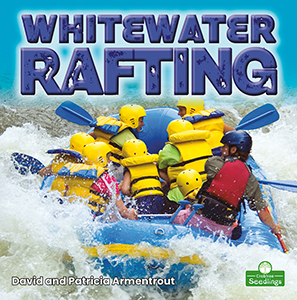
Exciting and Safe Outdoor Fun (Crabtree Seedlings) 
If you get a thrill from extreme outdoor sports and like to challenge yourself, this series is for you. Learn how to build your skills, and find useful information on equipment, gear, and sports tips. Every book also includes a page for caregivers and teachers that suggests guiding questions to help aid in reading comprehension. Downloadable Teacher's Guide available.
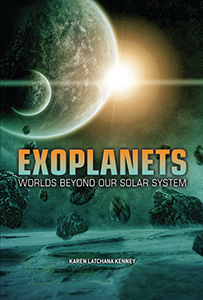
Exoplanets: Worlds beyond Our Solar System 
As of March 2016, planetary scientists have discovered almost 2,000 exoplanets-planets that orbit stars other than the Sun. Readers will learn about high-powered orbiting telescopes such as NASA's Kepler Space Telescope and the Spitzer Space Telescope; observatories such as the Geneva Observatory in Switzerland; and upcoming missions such as the 2018 launch of the James Webb Space Telescope, all of which aid scientists in their work to discover more solar systems and exoplanets. Profiles of and quotes from top planet hunters include those of Debra Fischer, Gordon Walker, and Geoffrey Marcy, among others.
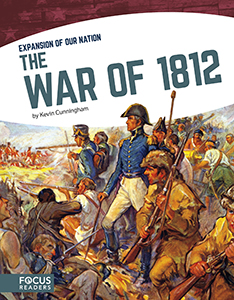
Expansion of Our Nation (Navigator)
Foundations of Our Nation gives readers an up-close look at the formative years of the United States. Each book offers an engaging description of historical events, along with a "Voices from the Past" feature that delves into a primary source. These books provide readers with an insightful window into the leaders and institutions that have shaped the United States.
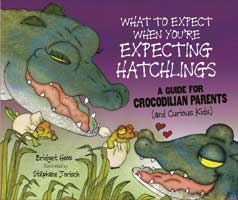
Expecting Animal Babies
In these hilarious guides for animal parents, read all about how animals raise their young. The fun Q & A format, lighthearted tone, and bright illustrations inform and entertain.
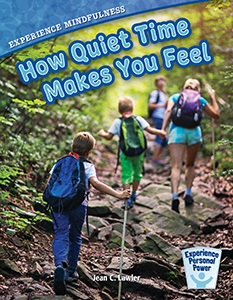
Experience Personal Power
Experience Personal Power is a 4-book series to help young readers build personal power to feel secure and confident with themselves. Each book helps kids learn to act, feel, and speak in ways that foster a life of balanced activity and self-care. Research shows that kids who spend time in nature, make thoughtful food choices, practice mindfulness, and make thoughtful media choices generally do well in school. Readers will learn to call frequently on their personal power for self-monitoring, self-control, planning and prioritizing.
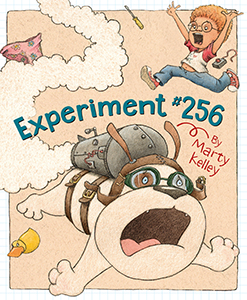
Experiment #256
Ian is wild about science experiments and for his latest (number 256) he's building a jet pack for his dog, Wilbur--the leftover parts shouldn't be anything to worry about, right? When Wilbur dons his new pack and blasts off, he leaves a swath of chaos in his wake and nobody is happy, Wilbur least of all. What's a budding inventor to do?